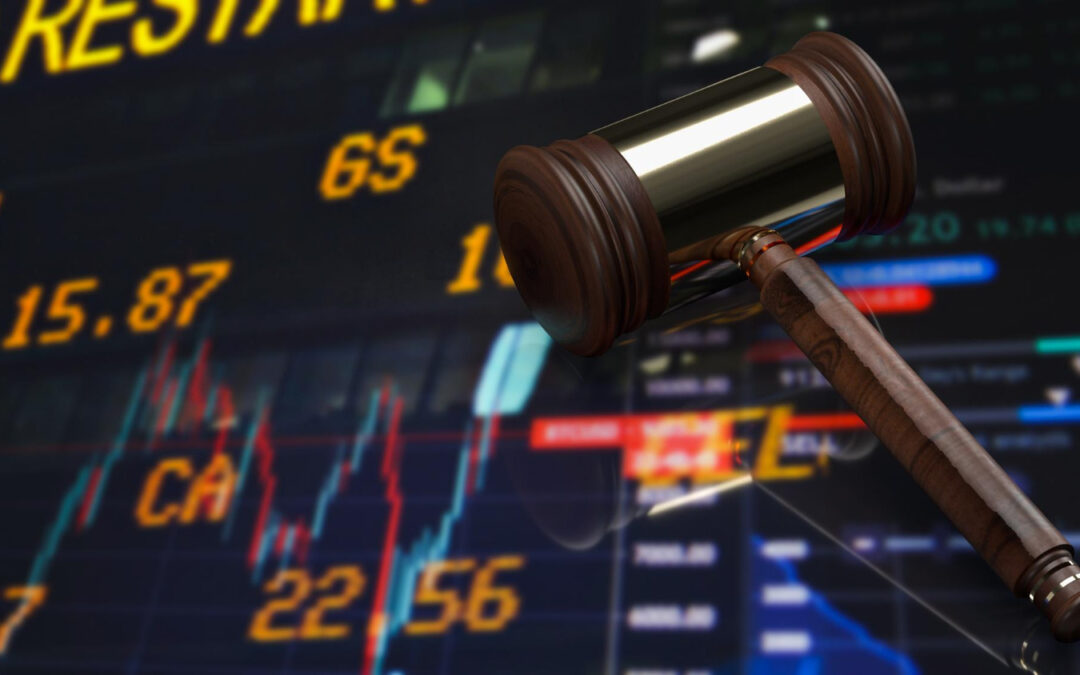Are Prop firms legal? – The global financial marketplace offers an array of complex and varied avenues for investment and trading, one of which is represented by proprietary trading firms, often referred to as ‘prop trading’ firms. This sphere of financial operation, relatively less known outside the world of finance, invariably triggers a range of questions, the most prominent among them being, “Are prop trading firms legal?”
While the brief and straightforward answer is a resounding ‘yes,’ the multifaceted nature of their operations, combined with stringent regulatory requirements, makes this an engrossing subject, meriting a deep dive for a clearer understanding.
Are Prop Firms Legal?: An Outline
Proprietary trading firms, or ‘prop firms’ as they’re commonly known, function on a business model that revolves around trading financial instruments like stocks, bonds, and commodities, using the firm’s own capital rather than its clients’ money. This distinct characteristic sets them apart from traditional broker-dealer models that trade on behalf of their clients. Prop firms, in essence, stake their own money in the market, fully accepting the risk and potential reward associated with their trading decisions.
A Journey Through Time: The Historical Evolution of Prop Trading Firms
While the concept of proprietary trading isn’t novel, its significance has grown in recent decades due to a combination of deregulation and advancements in technology. As early as the 19th century, merchant banks in Europe were engaged in activities akin to modern proprietary trading, involving their own funds in investments and trades.
During the 1980s and 1990s, the financial sector witnessed substantial deregulation, causing proprietary trading desks to become a common feature within investment banks and other financial institutions. The repeal of the Glass-Steagall Act in 1999, which had kept commercial and investment banking activities separate, opened the gates for banks to more freely participate in speculative trading.
However, the global financial crisis of 2007-2008 brought about the introduction of the Volcker Rule in the United States as part of the Dodd-Frank Wall Street Reform and Consumer Protection Act. Designed to limit banks from making certain types of speculative investments that did not serve their customers, this rule led to a significant reduction of proprietary trading desks within large banks and paved the way for the rise of independent prop trading firms.
Operating Within the Bounds of Law: The Regulatory Framework Governing Prop Trading Firms
Contrary to the misconception that prop trading firms exist in a legal gray area, they are, in fact, regulated entities. However, they operate differently from traditional investment firms. The oversight of prop firms falls under regulatory bodies such as the U.S. Securities and Exchange Commission (SEC), Financial Industry Regulatory Authority (FINRA), Commodity Futures Trading Commission (CFTC), and equivalent regulatory authorities across the globe.
These firms are obligated to comply with a multitude of legal requirements and regulatory guidelines. These encompass capital adequacy rules, risk management protocols, financial reporting standards, and rules regulating the conduct of traders. Moreover, they are required to implement robust anti-money laundering (AML) and know-your-customer (KYC) procedures.
Dispelling Misconceptions: Addressing the Controversy Surrounding Prop Trading Firms
A sense of controversy often surrounds prop trading firms due to several factors. Firstly, these firms typically maintain a low profile, largely because the competitive nature of their business model necessitates protecting their proprietary trading algorithms and strategies.
Secondly, the speculative nature of prop trading can result in significant losses, with the risk borne solely by the firm. This inherent risk can occasionally create an image of volatility or recklessness. However, it is critical to remember that these firms manage risk meticulously, and instances of excessive risk-taking are exceptions rather than the norm.
Lastly, prior instances of regulatory violations by some prop trading firms have also contributed to their controversial image. Cases of ‘spoofing,’ a market manipulation tactic involving the placement and subsequent cancellation of orders before execution, serve as examples. Nevertheless, it’s essential to note that such incidents are not reflective of the industry as a whole.
The Final Word: Affirming the Legality of Prop Trading Firms
Although prop trading firms operate in a high-stakes, complex environment demanding thorough regulatory compliance, they are fundamentally legal entities. They play a critical role in enhancing the efficiency of financial markets by providing liquidity, aiding in price discovery, and increasing market depth.
In conclusion, understanding the legality of prop trading firms involves more than a simple affirmation of their legality. It requires an understanding of their significant role in financial markets, the regulations that govern them, and their meticulous risk management practices. Despite being occasionally shrouded in controversy, prop trading firms are not just legal but are vital contributors to the global financial ecosystem.


